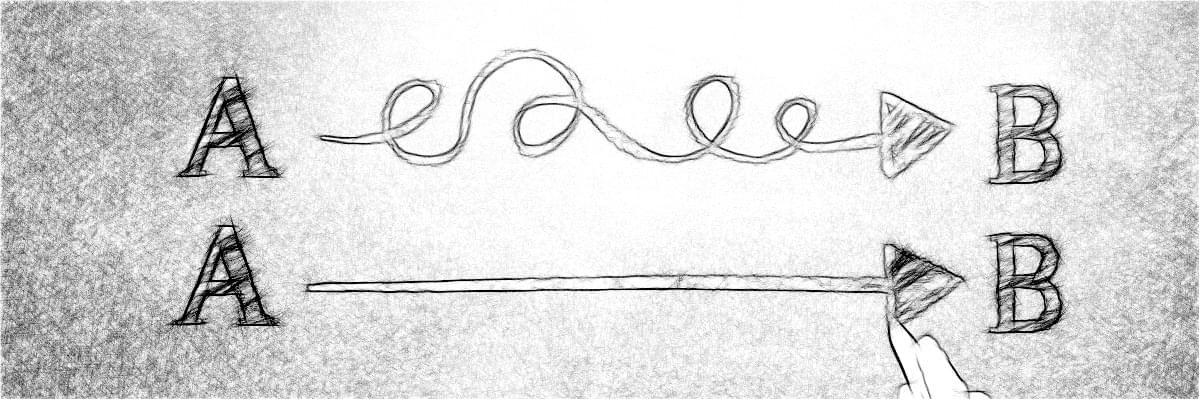Accessible Brand Names and Convenience
The brand concepts of accessible and convenient have greatly evolved over the years. At the turn of the century, it meant having a good website with decent customer support. And for those brands in the retail sector, it also meant availing your product or service within a reasonable distance to consumers.
Most of these concepts still exist today, albeit in a much-improved fashion. Accessible websites are now fast, and excellent customer support is a must. Consequently, convenient brands can provide their products and services with the push of a button. Customers no longer have to take a ‘reasonable walk’ to get goods; these will be delivered right to their doorstep.
But in all this, one thing slips under the radar; the brand name. It may look like a simple concept; come up with a memorable name, and everything else will sort itself out. However, successful brand names take it a little further than that.
Herein is the psychology and significance of accessible and convenient brand names:
What exactly are accessible brand names?
Pretty much everything today happens over the internet. That’s where we get the bulk of our news, make most of our purchases, and interact with existing and upcoming brands. And most of the time, it starts with a simple internet search.
"Cursor on the search bar, fingers cruising over your keyboard, and off you go looking for information on or goods and services from a particular brand."
But here’s a habit most users, including us, subconsciously engage in: We find it easier to search for brand names that are accessible, i.e., easy to spell, pronounce and interpret. As such, we have more willing interactions online with such brands.
This is why having an accessible brand name is important.
Characteristics of accessible brand name
A good brand name is memorable. But an effective brand name is accessible. So, here are some of the most crucial features of accessible brand names.
1. Easy to spell

An accessible brand name is easy to spell, even for customers with little or no knowledge of that particular language. This makes it easier to search for the company or business online, allowing for more brand-consumer interaction.
However, it’s quite possible to get away with the opposite as popular, successful brands with complicated spellings exist. These include Volkswagen, Chevrolet, Tag Heuer, Louis Vuitton, e.t.c. Naturally, these don’t shine in accessibility, but given their popularity, it’s actually a flex to get their names right.
Also, if you’re the only player in a particular niche, consumers will care less about how easy it is to write down your name.
2. Easy to recall

Brand re-call is an important feature not just in marketing and popularity but also for accessibility. It’s generally easier for people to look up a company name that they remember. This is especially useful if the brand is just entering the market and trying to win consumers over.
For instance, take what happens when you can’t remember the name of a particular product, song, TV show, or movie. You’ll most likely try to describe the song/movie/product to the search engine and hope Google provides you with more accurate results on the subject.
The same goes with brands, only this time, it’s much harder to describe a company to the search engine. For example, you saw an interesting ad from a company that sells socks with red stripes. You want to learn more about the brand but can’t quite remember the name.
Going into the browser, you realise that typing in ‘the company that sells red socks with stripes’ doesn’t yield the desired result as many brands are doing the same thing. It’s also tiring and inconvenient to key in a whole sentence just to find one company.
This is why the businesses names must be memorable and easy to recall.
3. Short

The longer a brand name is, the harder it is to spell, recall, and thus, type into the search bar. Thus, being short and sweet is a marker of an accessible brand name. Popular brands with short and memorable names include Nike, Gucci, Puma, Zoom, Twitch, Apple, Meta, and Sony.
This is counter intuitive topic poses extended discussions. Difficulty is strategic and will always align to your business needs.
Just keep it short silly. Or, for better word KISS principle on development.
4. Unique

There are millions of registered businesses currently in operation. Thus, an accessible brand name needs to be entirely unique or at the very least, unique in their market and similar markets. This means that as people search for the company online, they are less likely to key in the wrong keyword and look into a different brand with a similar name.
Uniqueness also makes it easier for the public to remember a company’s name.
Being unique in the market is everything!
To differentiate means to innovate and create a clear sitincition between competitors and you.
5. Doesn’t have unintended or negative meanings

The internet has practically turned the globe into a village and thus, allowed many brands to go international. However, we understand different languages that may have similar words with different meanings. As such, an accessible brand name should not convey and unintended or have negative meanings.
Take, for instance, Nokia’s and later, Microsoft’s Lumia brand. It has since been discontinued, but it makes for an interesting case. Here’s why.
The name Lumia ticked most of the requirements for a good brand name; it’s easy to spell and remember, unique, and short. However, there was a little controversy when it came to the Spanish meaning of the word Lumia. This word translates to prostitute in Spanish. So, you can imagine how weird it was for native Spanish speakers to search for the brand online. It’s even worse if the search engine settings had Spanish as the preferred language.
What else can help with brand accessibility?
While the brand name helps with brand accessibility, it’s still incomplete without a good web design. A Google search will ultimately lead the user to the company’s website, and if the website’s design is horrible, the brand’s accessibility ends there.
Therefore, it’s important to have an excellent web design that makes it easier for users to navigate the website, search, and access any information they may need.
Why is accessibility important?
Accessibility is all about convenience. If the brand name is short, memorable, easy to spell, and unique, it becomes very convenient for people to look it up. The same applies to the website; if its design is well-organised, fast, and responsive, it becomes easier for users to browse the website.

